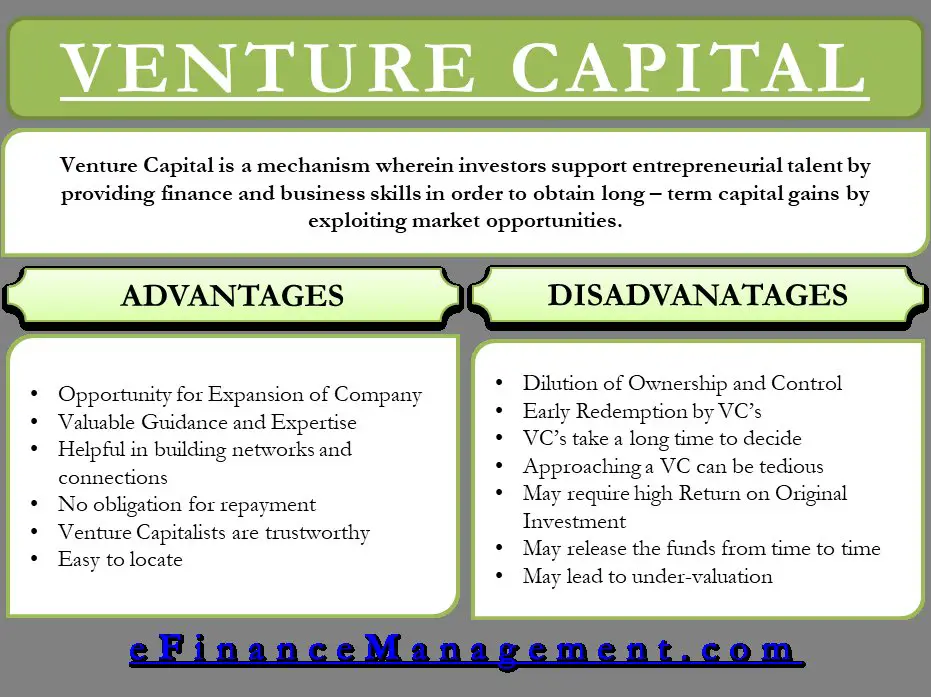Penny stocks: intriguing, enticing, and often misunderstood. You’ve likely heard the term floating around, but what exactly are penny stocks and what risks do they entail? In a nutshell, penny stocks are low-priced shares of small companies that trade over-the-counter. Now, you might be wondering about the potential dangers lurking within these enticing investments. Well, strap in and let’s embark on this journey to demystify the world of penny stocks and understand their risks. Buckle up, because we’re about to delve into the unpredictable realm of high-risk, high-reward investments.
What are Penny Stocks and Their Risks?
Investing in the stock market can be an exciting way to grow your wealth and achieve financial goals. While most people are familiar with blue-chip stocks, there is another category of stocks that often comes with both potential for high returns and significant risks: penny stocks.
Penny stocks, also known as micro-cap stocks, are shares of small companies traded at a low price. These stocks typically trade for less than $5 per share and are often listed on over-the-counter (OTC) exchanges or pink sheets, rather than major stock exchanges like the New York Stock Exchange (NYSE) or Nasdaq.
In this article, we will explore what penny stocks are and delve into the risks associated with investing in them. Understanding these risks is crucial for anyone considering adding penny stocks to their investment portfolio.
The Appeal of Penny Stocks
Penny stocks can be alluring to investors due to their low price and the potential for significant gains. Some of the reasons why investors may find penny stocks appealing include:
- Low Barrier to Entry: Penny stocks are an attractive investment option for individuals with limited capital to invest. With their low prices, investors can afford to purchase a larger number of shares compared to higher-priced stocks.
- Potential for High Returns: While there is no guarantee, penny stocks have the potential to provide substantial returns. If the price of a penny stock increases, even by a few cents, the percentage gains can be significant.
- Opportunity for Early Investment: Penny stocks often represent early-stage companies with innovative ideas and technologies. Investing in such companies at an early stage can lead to substantial returns if the company succeeds and grows.
The Risks of Penny Stocks
Despite their potential for high returns, penny stocks come with inherent risks that investors should be aware of. It is important to approach these investments with caution and conduct thorough research before making any decisions. Below are some of the risks associated with investing in penny stocks:
1. Lack of Liquidity
Penny stocks are typically traded on smaller exchanges with less trading volume compared to major stock exchanges. This lack of liquidity can make it challenging for investors to buy or sell shares at their desired price. When trading volumes are low, it can result in wider bid-ask spreads, making it harder to execute trades efficiently.
Furthermore, owing to lower trading volumes, it may be difficult to exit a position quickly if the market turns against you. The lack of liquidity can leave investors stuck with illiquid positions and potentially unable to sell their shares when desired.
2. Volatility and Price Manipulation
Penny stocks are notorious for their high volatility. Due to their low price and limited trading activity, the prices of penny stocks can fluctuate dramatically in short periods. This volatility exposes investors to significant price swings, making it difficult to predict future movements accurately.
Moreover, penny stocks are susceptible to price manipulation. Unscrupulous individuals or groups may attempt to artificially inflate the price of a penny stock through false or misleading information, known as pump and dump schemes. These schemes can lead to significant losses for investors once the manipulation ends, as the stock price plummets.
3. Lack of Regulation and Transparency
Penny stocks are often traded on OTC exchanges or pink sheets, which have looser regulatory requirements compared to major exchanges. The companies listed on these exchanges may not be subject to the same level of scrutiny and reporting standards as those listed on the NYSE or Nasdaq.
This lack of regulation and transparency can make it difficult for investors to obtain accurate and reliable information about the company’s financial health, operations, and potential risks. It is essential for investors to conduct thorough due diligence and research before investing in penny stocks to mitigate the risk of falling prey to fraudulent or financially unstable companies.
4. Lack of Historical Performance
Since penny stocks typically represent early-stage companies, they often lack a substantial track record of financial performance. Limited historical data can make it challenging to evaluate a company’s long-term prospects and make informed investment decisions.
Without a solid understanding of a company’s financials, growth potential, and competitive positioning, investors may be relying on incomplete or unreliable information, increasing the risk of making poor investment choices.
5. Company-Specific Risks
Investing in penny stocks is also subject to the specific risks associated with individual companies. These risks can include:
- Financial Stability: Penny stocks often represent companies with limited financial resources. These companies may face challenges in generating sustainable revenue, securing funding, or managing their expenses.
- Market Competition: Micro-cap companies are often operating in highly competitive industries. The success of these companies can depend on their ability to differentiate themselves and gain market share in a crowded market.
- Management Risk: The leadership and management team of a company play a crucial role in its success. Investing in a penny stock means putting faith in the management’s ability to execute their business plan and make sound decisions.
- Industry and Regulatory Risks: Like any other company, penny stocks can be exposed to industry-specific risks and changes in regulations that may impact their operations and profitability.
Taking a Prudent Approach to Penny Stock Investments
While the potential for significant gains can be tempting, it is essential to approach penny stock investments with caution. Here are some tips for taking a prudent approach:
- Do Your Research: Thoroughly investigate the company’s financials, management team, industry trends, and any red flags before investing in a penny stock.
- Set Realistic Expectations: Understand that penny stocks often come with high risk and volatility. Avoid investing more than you are willing to lose and be prepared for the possibility of losing your entire investment.
- Diversify Your Portfolio: Reduce risk by diversifying your holdings across different asset classes and investment types.
- Consult a Financial Advisor: If you are unsure about investing in penny stocks, consider seeking advice from a qualified financial advisor who can provide personalized guidance based on your financial goals and risk tolerance.
- Monitor Your Investments: Regularly review your penny stock investments and stay updated on any news or developments that may affect the company’s prospects.
While penny stocks offer the potential for high returns, investors must also acknowledge the significant risks involved. The lack of liquidity, volatility, potential for price manipulation, and company-specific risks present challenges that require careful consideration.
By conducting thorough research, diversifying investments, and setting realistic expectations, investors can navigate the world of penny stocks more prudently. Remember, making informed decisions is crucial to mitigate risks and increase the chances of achieving favorable outcomes in the highly volatile penny stock market.
Frequently Asked Questions (FAQs)
Here are some common questions related to penny stocks:
- 1. Are penny stocks a good investment?
While penny stocks have the potential for high returns, they also come with significant risks. Investors should carefully evaluate each investment opportunity and be prepared for the possibility of losing their entire investment.
- 2. How can I find penny stocks to invest in?
There are various ways to find penny stocks, including scanning stock screeners, researching companies listed on OTC exchanges, and seeking recommendations from financial advisors or online communities. It is important to conduct thorough research and due diligence before investing in any penny stock.
- 3. Can I make a lot of money from penny stocks?
While it is possible to make significant profits from penny stocks, it is important to approach these investments with caution. The volatility and risks associated with penny stocks mean that investors should be prepared for the possibility of losing their investment.
Please note that investing in penny stocks carries inherent risks, and it is essential to consult with a financial advisor or do thorough research before making any investment decisions.
Penny Stocks Explained
Frequently Asked Questions
Frequently Asked Questions (FAQs)
What are penny stocks?
Penny stocks are low-priced stocks, often trading for less than $5 per share. These stocks are typically issued by small companies with a market capitalization of less than $300 million.
What are the risks associated with penny stocks?
Investing in penny stocks carries several risks, including:
1. Volatility: Penny stocks are highly volatile, meaning their prices can fluctuate dramatically in a short period. This volatility can lead to rapid gains or losses.
2. Lack of liquidity: Penny stocks often have low trading volumes, which can make it difficult to buy or sell shares without significantly impacting the stock’s price.
3. Limited information: Compared to larger publicly traded companies, penny stocks may have limited financial information available, making it challenging to evaluate their true value.
4. Susceptibility to scams: Penny stocks are sometimes associated with fraudulent activities, such as pump-and-dump schemes. Investors need to be cautious and conduct thorough research before investing.
5. Lack of regulatory oversight: Penny stocks are typically traded on over-the-counter (OTC) markets, which have less regulatory oversight compared to major stock exchanges.
How can I mitigate the risks associated with penny stocks?
To mitigate the risks associated with penny stocks, consider the following strategies:
1. Do thorough research: Investigate the company’s financials, management team, industry trends, and any potential red flags before investing.
2. Diversify your portfolio: Spread your investments across different sectors and asset classes to minimize the impact of a single stock’s performance.
3. Set realistic expectations: Penny stocks are highly speculative investments, so it’s important to have a realistic understanding of the associated risks and potential rewards.
4. Use limit orders: When buying or selling penny stocks, consider using limit orders instead of market orders to have more control over the price at which your trade is executed.
5. Consult with a financial advisor: Seeking advice from a qualified financial advisor can provide valuable insights and help you make informed investment decisions.
Can penny stocks generate significant profits?
While it is possible for penny stocks to generate significant profits, it’s important to remember that they also come with a high level of risk. The volatile nature of penny stocks means that for every success story, there are many more instances of financial loss. It’s crucial to thoroughly research and assess the risks before considering penny stocks as an investment option.
Are penny stocks suitable for long-term investments?
Penny stocks are generally not considered suitable for long-term investments. The inherent risks and volatility associated with penny stocks make them better suited for short-term trading strategies, rather than long-term buy-and-hold investments.
Are there any regulations specific to penny stocks?
Yes, there are regulations specific to penny stocks. In the United States, the Securities and Exchange Commission (SEC) has implemented rules, such as the “Penny Stock Reform Act,” to protect investors from fraudulent practices associated with penny stocks. These regulations aim to enhance transparency and ensure that investors have access to essential information before making investment decisions.
Are there any advantages to investing in penny stocks?
While penny stocks come with significant risks, there are a few potential advantages:
1. Potential for high returns: Due to their low prices and volatility, penny stocks have the potential to deliver substantial returns if the right investment opportunities are identified.
2. Opportunity for early-stage investments: Penny stocks often represent small companies in their early stages, providing investors with the opportunity to spot and invest in potential breakthrough companies before they gain wider recognition.
3. Learning experience: Investing in penny stocks can be a valuable learning experience, allowing investors to understand market dynamics, company analysis, and risk management.
Do penny stocks trade on major stock exchanges?
Penny stocks typically trade on over-the-counter (OTC) markets instead of major stock exchanges. OTC markets offer less regulatory oversight and tend to have lower liquidity compared to major exchanges like the New York Stock Exchange (NYSE) or NASDAQ.
Final Thoughts
Penny stocks can be an enticing investment option, offering the potential for high returns in a short period. However, it’s important to understand the risks associated with penny stocks before diving in. These stocks are typically issued by small companies with limited liquidity and financial stability. The lack of regulation and information transparency can make them highly volatile and prone to manipulation. Additionally, penny stocks are often illiquid, making it challenging to buy or sell shares at desired prices. Therefore, investors must exercise caution and thorough research before considering penny stocks. Understanding the potential risks is crucial in avoiding financial pitfalls and making informed investment decisions.



